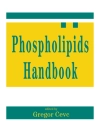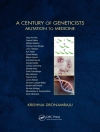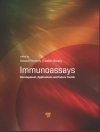With the rapid development of biotechnologies, single-cell sequencing has become an important tool for understanding the molecular mechanisms of diseases, defining cellular heterogeneities and characteristics, and identifying intercellular communications and single-cell-based biomarkers. Providing a clear overview of the clinical applications, the book presents state-of-the-art information on immune cell function, cancer progression, infection, and inflammation gained from single-cell DNA or RNA sequencing. Furthermore, it explores the role of target gene methylation in the pathogenesis of diseases, with a focus on respiratory cancer, infection and chronic diseases. As such it is a valuable resource for clinical researchers and physicians, allowing them to refresh their knowledge and improve early diagnosis and therapy for patients.
Tabla de materias
Values of single-cell sequencing and methylation in molecular diagnosis and therapy.- Single-cell sequencing in human diseases.- Single-cell sequencing of T cell receptors: A perspective on the technological development and translational application.- DNA Methylation in pulmonary fibrosis.- Molecular regulation and clinical significance of caveolin-1 methylation in chronic lung diseases.- Research advances on DNA methylation in idiopathic pulmonary fibrosis.- DNA Methylation in Chronic Obstructive Pulmonary Disease.- Single cell sequencing: a new dimension in cancer diagnosis.- The Role of Methylation in the Cp G Island of the ARHI Promoter Region in Cancers.- Clinical Significance of P16 Gene Methylation in Lung Cancer.- Application of single-cell RNA sequencing in pancreatic cancer and the endocrine pancreas.- Single Cell Sequencing in GU Malignancies.- PI3K Isoform-Selective Inhibitors in Cancer.- Single cell RNA sequencing in human disease: Renal, pancreatic, and viral diseases.- Single-cell sequencing in human genital infections.- PI3kinase Inhibitors in Thrombosis and Cardiovascular Disease.- Use of single-cell microfluidic technology towards therapeutic antibody discovery from single B cells.
Sobre el autor
Buwei Yu, MD, Ph D, is a Professor at the Department of Anesthesiology,Shanghai Ruijin Hospital, Shanghai Jiaotong University School of Medicine, and President of the Chinese Medical Doctor Association and the Society of Anaesthesiologists.
Jiaqiang Zhang, MD, Ph D, is a Professor and Director of the Department of Anaesthesiology and Perioperative Medicine, Henan Provincial People’s Hospital, and a member of the Chinese Medical Association’s Anaesthesia Branch, and the National Committee of the Anaesthesia Branch of the Chinese Medical Association. He is also Vice Chairman of the Anaesthesia Branch of the Henan Medical Association. His main research focuses include investigating the mechanisms of postoperative cognitive dysfunction, clinical bioinformatics, anesthesia and neurodevelopment, and the physiology of pain. He is the author of more than 150 scientific publications.
Yiming Zeng is a Professor of Respiratory Medicine, Chairman of the Academic Committee of the Second Affiliated Hospital of Fujian Medical University, State Council Expert for Special Allowance, and Director of Fujian Province’s Sleep Medicine Key Laboratory. He was named a middle-aged expert with outstanding contributions from the National Health and Family Planning Commission of the People’s Republic of China (NHFPC). His main research focuses include clinical interventional pulmonology; sleep-breathing disorders; and non-invasive mechanical ventilation. He is the author of more than 150 scientific publications.
Li Li is the Director of Department of Science Research and Discipline Construction, and Principle Investigator of the Clinical Centre of Single-Cell Biomedicine, Henan Provincial People’s Hospital. She is a member of clinical research group of the Chinese Medical Association’s Scientific Research Management Branch, and of the Standing Committee of the Chinese Medical Association’s Henan Research and Management Branch. Further, sheis Vice-chairman of Henan Discipline Management Branch of the Chinese Hospital Management Society. She has been engaged in the management of medical scientific research for 30 years, with a focus on big data, laboratory biosafety and medical ethics. She published more than 20 scientific papers.
Xiangdong Wang, MD, Ph D, is a Distinguished Professor of Medicine, Director of Shanghai Institute of Clinical Bioinformatics, Executive Director of Clinical Science Institute of Fudan University Zhongshan Hospital, Director of Fudan University Center of Clinical Bioinformatics, and Deputy Director of Shanghai Respiratory Research Institute. He is also a Visiting Professor at King’s College London. His main research focuses on clinical bioinformatics, disease-specific biomarkers, chronic lung diseases, cancer immunology, and molecular and cellular therapies. He is the author of more than 300 scientific publications.












